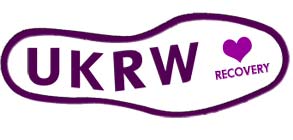I'm with Bill White when he describes what a worker in the field could be to help facilitate recovery.
1.Lay and professional helpers should not do anything for the individual or family members over time that they are capable of doing for themselves.
2. Professional agencies and roles should not provide services to the community in response to needs that can be met within the client’s natural support system.
3. Professional helpers should avoid creating barriers to client contact with local communities of recovery, e.g., scheduling service activities at times that conflict with community recovery meetings, restrictive visitation policies that prevent contact while individuals are in
residential treatment modalities.
4. Persons occupying all roles should accurately represent their education, training and experience as well as the basis upon which their recommendations are being made.
5. Conflicts between those filling these roles are best resolved within a framework of mutual respect.
6. All recovery support roles share a commitment to help those they serve and to not exploit this relationship for personal or institutional gain. All parties have a responsibility to immediately confront such exploitation if it occurs.
The question is not, “Which of these roles is THE most important in the recovery process?” Each contributes different ingredients to the recovery process at different stages of individual and family recovery. The question is, “How can such resources be bundled and sequenced in ways that widen the doorway of entry into recovery and enhance the quality of recovery?” Achieving that vision requires the availability of multiple support roles that are accessible at key points within one’s addiction and recovery careers as well as the careful delineation of the boundaries of these roles.
One of the sources of role ambiguity and conflict between sponsors and recovery coaches is the commonalities that are shared by these roles. Persons filling both roles:
• are credentialed by experience rather than formal education and training (My one amendment here would be that they have to have had some experience of recovery not necessarily from substance misuse and that training is essential especially in motivational interviewing if this is not a natural skill they possess.
establish non-hierarchical (or minimal-hierarchy) relationships based on a mutuality of shared experience,
• rely on self-disclosure and advice, • focus on removing obstacles of recovery and building recovery capital • model core recovery competencies and • maintain continuity of contact over time with those needing recovery guidance and support.

No comments:
Post a Comment